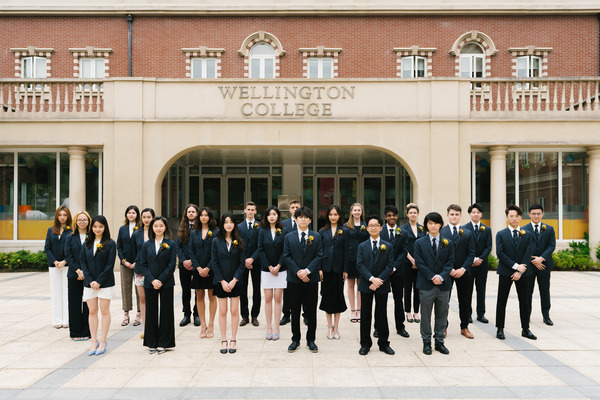Getting to know the IB Diploma Programme

Pupils taking the traditional A-level qualifications will typically study three subjects in depth. The IBPD consists of six subject groups and the DP core curriculum, comprising theory of knowledge (TOK), creativity, activity, service (CAS) and the extended essay (EE). This wider range of studied subjects is designed to let pupils take a broader exploration of learning without specialising too narrowly too early on in their formal education. Ideally, this approach will give them the ability to not only enjoy a more holistic education, but also guide them on to a future university and career path that is right for them.

I get asked this question a lot by parents whose children are about to undertake the IB, and by the pupils themselves. Why study six subjects plus the DP core if you already know what subjects you are good at from the GCSE/IGCSE years, right? Why not focus on just three subjects which are most likely to result in the best grades? The problem with this approach is that firstly it is based on the assumption that the pupil truly does know what they are ‘good at’. Wellington’s guiding principle is that a holistic education is the best path to prepare our pupils. By studying more subjects, more widely but still in depth, pupils are truly able to discover where their talents and interests lie. Together with the DP core, we believe that this approach sets young people up to be very capable and versatile thinkers. The IBDP achieves this with its emphasis on independent learning and being proactive and resilient throughout the two years of study. These are abilities that our pupils need more than ever before, as the world continues to change faster and more noticeably.

The IB has a well-known reputation for being challenging. That’s because it is challenging. Balancing the need to explore six different subjects and produce work of a consistently high standard, alongside the demands of CAS, TOK and EE is not easy. However, the challenging nature of the IB is a big part of its inherent value. The course expects a lot of its pupils. It pushes them, focuses them, and, crucially, it opens up new horizons for them. So while the difficulty of the task might seem daunting at first, know that the rewards are significant.

For me, the ideal IB pupil should be all of the following things:
A diligent time manager – Every pupil needs to be able to be organised and capable of making the best use of their time every day, with appropriate support of course from the College, their teachers and tutors.
An effective communicator – Asking for help when necessary is not a weakness, it’s a strength, particularly in the context of the IBDP. Pupils need to be open about their performance and their experiences with the course. They also need to come forward and proactively engage with their teachers, especially if they are experiencing difficulties.
A hard worker – While the level of work involved in the IBDP is always manageable with the right approach, coasting is not an option. Pupils need to be thinking strategically about keeping on top of their current workload while looking ahead to key deadlines for internal assessments, essays and other major pieces of work that contribute to their final grade.

While we can’t fully guarantee where a pupil will end up after they complete the IBDP, I can say with complete confidence that it will help them discover where they truly want to be, and then give them the best possible chance to get there. Perhaps more importantly, our sixth formers completing the IBDP leave school confident in the knowledge that they have fought for the options they deserve and made the choice that is right for them. During my time at Wellington, I’ve had the privilege of seeing many pupils mature in a very short space of time, making honest, self-aware decisions about what paths inspire them. Similarly, I have seen pupils go on to study at universities that, at the beginning of the programme, felt completely out of their reach. This is what happens when hard work, willpower and the right amount of ambition collide. With the right support, the IBDP gives pupils the tools they need to succeed at their chosen higher education course and in later life. More importantly, it improves their ability to tackle new challenges and to cope with pressure and failures. They have grit and resilience, the ability to understand their own inherent strengths and weaknesses, and vitally, to know what they want and how to go after it.
Related Articles













